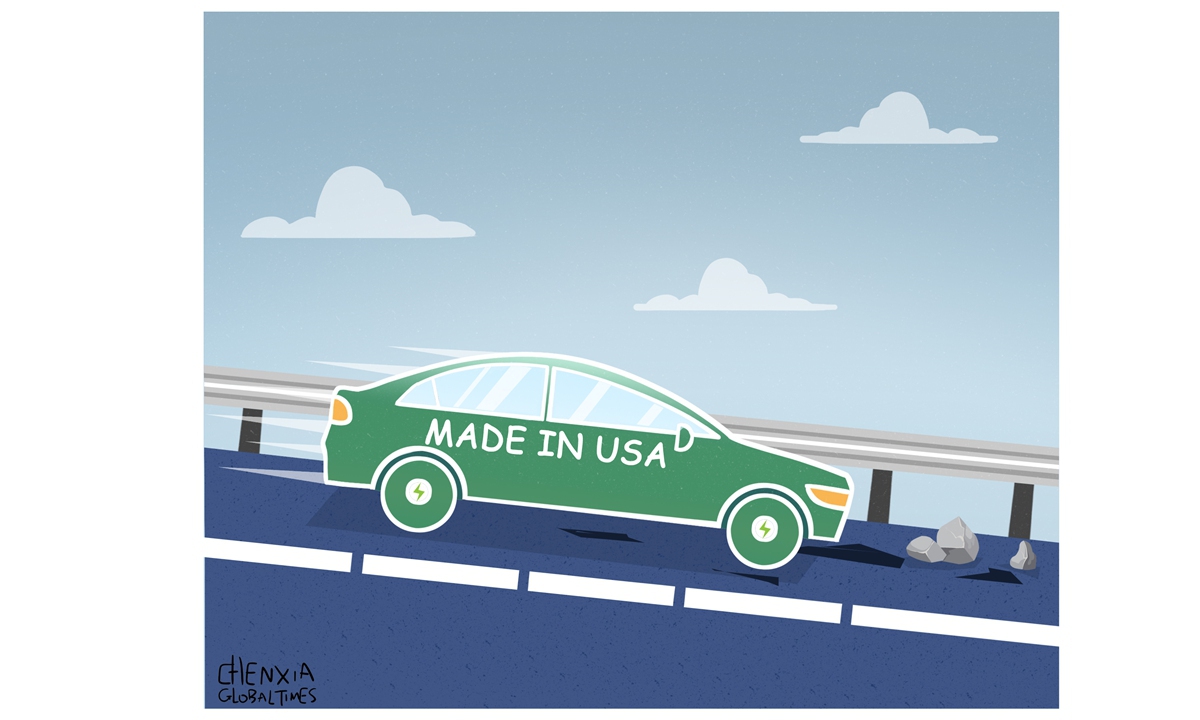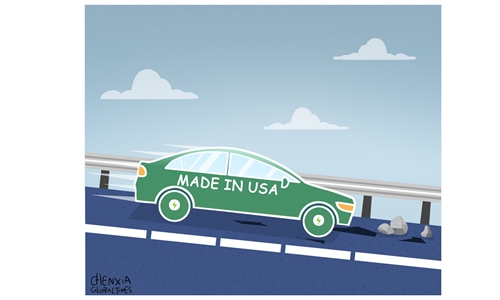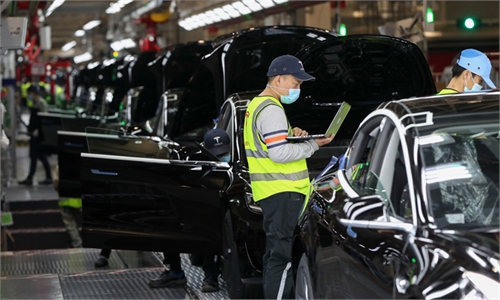
Illustration: Chen Xia/Global Times
Electric vehicle has become a point of friction in trade and investment between the US and other major economies in the world, including China. The latest example is Pete Buttigieg, the US Secretary of Transportation, who said the US must take steps to "cut into China's advantage" in batteries used to power electric vehicles (EVs), Bloomberg reported on Sunday.
Buttigieg said that the refining capacity of many key materials needed for making EV battery components "is very concentrated in China."
He emphasized that the US has to ensure it is positioning to have an economically sensible and geopolitically stable approach to "get these vitally important elements in our economy," according to Bloomberg.
Being an economic power, the US is home to many leading auto companies. The country is a pioneer of the auto industry, but in recent years, the US' manufacturing sector has largely atrophied. US Ford Motor Executive Chairman Bill Ford said the US is "not quite yet ready" to compete with China in the production of electric vehicles, Reuters reported on Sunday.
Currently, the US government is pulling out all the stops to revive its traditional manufacturing industry and flexing all policy muscles available to attract investments in electric vehicles and batteries manufacturing. In the process, a wide range of critical minerals - especially lithium - have gained attention because of their role in electric-vehicle technology.
As a result, global competition for critical minerals is getting increasingly fierce. In 2022, the US and other Western countries announced an alliance to produce and buy critical minerals, a move analysts believe could reduce business with China.
The Biden administration may want to set up a critical mineral alliance to help US auto makers build up competitiveness, but it should be pointed out that protectionism can hardly provide any impetus and vitality to its economy and its auto sector. On the contrary, the American policies will backfire by increasing manufacturing cost and disrupting global supply chains.
The US' rising protectionism is a distorted hegemonic behavior that violates global principles and norms. History has proved that no country can solve its economic problems through endorsing protectionist measures. The US is no exception.
It is undeniable that China's fast-growing EV market is becoming increasingly competitive. As a result, the country has become both the world's biggest market for, and maker of, EVs. Amid US concerns about losing EV competition with China, Washington's reckless crackdown on Chinese EV industry will likely accelerate.
However, as long as China's EV industry can maintain its development in market size, the growing economic strength will enable China's EV manufacturing to withstand pressure from the US' rising protectionism.
Chinese companies account for more than half of the global EV battery market share and meet as much as 90 percent of the market demand for major battery-making materials, according to BloombergNEF.
By advocating economic "decoupling" from China, the US sees competition to gain critical minerals as a new battleground. However, even if the US expands its refining capacity and strengthens control of global critical mineral supply chains, it still needs the Chinese market, because US critical mineral suppliers cannot afford to lose the Chinese market.
Chinese enterprises currently lead the global EV batteries supply chain - from mining and refining through to final assembly. Cooperation, not decoupling, is the best option. In February, Ford Motor announced plans to invest $3.5 billion to build an electric vehicle battery plant in Michigan in a deal which involved using technology from Chinese battery giant CATL, according to Reuters. If the US wants to revive its auto manufacturing, it should make itself an ideal investment destination for multinationals, attracting companies like CATL to invest on its land.


